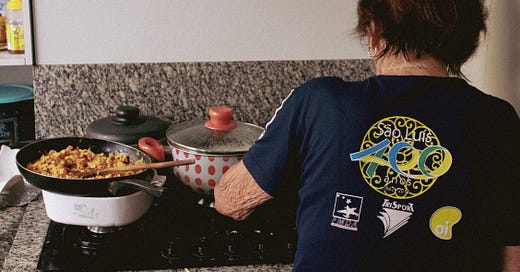A friend and I were talking about our families today when I realized that my grandmother (this grandmother) became a grandma (not my grandma) at 45.
She had my aunt when she was reasonably young and my aunt in turn had her first child at a young age as well.
She then went on to become a great-grandmother at 75, meaning my cousin already broke the trend a bit, having his first kid at 30.
Thus, even though I never met my great-grandparents, my cousin’s children have, and they should consider themselves quite lucky.
Because the age of great-grandparents is ending, and it didn’t last very long either.
It’s slightly paradoxical — in the past, I’ve thought about how since life expectancy is increasing, there probably will be more great-grandmothers. But on the other hand, people are having children much later too.
For instance, with the way things are going (i.e. me not being close to having kids), my parents will likely become grandparents when they’re nearing 70, a couple decades later than my grandmother.
In Brazil, where I’m from, this shift is quite recent. Until just one or two generations ago people were having multiple kids, and at very young ages. Now, I don’t have a single friend in my mid-to-late twenties friend group who has already had a kid.
So while the older generations are living longer and giving themselves a better shot at having great-grandkids, their descendants’ habits aren’t really helping.
But even more interesting is that this “age of great-grandmothers” as I like to call it not only is ending, but it hasn’t been here for long either.
How old did people live to be in the 1900s? What about the 1500s? And the 800s? Given all the advances we’ve had in medicine and other areas of society, more people can reach old age now than ever before.
And what that means is, while people had children even earlier, there likely weren’t as many people who got old enough to have grandkids even in that case.
So all in all, out of all the time humans have been on Earth, it is possible that the window in history (be it a few or several hundred years) during which there were probably the most great-grandparents is kind of around now, and it’s seemingly about to end.
Some people believe we can make significant jumps in longevity over the next century, but provided that doesn’t happen, we’ll likely see fewer and fewer great-grandmothers around.
And I can’t help but wonder: what will we lose as a society as a result?





Interesting thoughts here! I come from an East African background and great-grandmothers particularly were common, because women started having children so young (even teenage years, in my grandmother's generation). Great-grandfathers you would see much less often, I think both due to shorter life expectancy of men and the age in which they started having children. (For your data, I think the numbers are too heavily influenced by larger numbers of deaths under 5 years old, so life expectancy after early childhood hasn't actually increased that much.)
My understanding is that life expectancy was low in the past because child mortality was high, but adults who made it past these perilous early years often lived into their 60s, 70s.